open source
See the following -
7 Mistakes Your Open Source Project is Probably Making
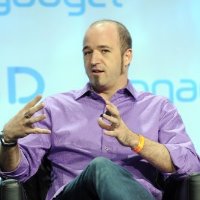 It can be tough to start a new open source project. You have an awesome idea in your head, but it takes work to turn it into a productive, healthy, engaging community. Sadly (as seems to be the case in practically anything), the same mistakes are made over and over again by new projects. Here are some of the most common mistakes open source projects make and my recommendations for avoiding them... Of the thousands of open source projects that kick off, too many get stuck at the outset because of a bunch of discussions on a Slack channel, mailing list, issue, or elsewhere. The discussions bounce around the house, and the scope often grows more and more lavish to incorporate the many, sundry ideas and considerations...
It can be tough to start a new open source project. You have an awesome idea in your head, but it takes work to turn it into a productive, healthy, engaging community. Sadly (as seems to be the case in practically anything), the same mistakes are made over and over again by new projects. Here are some of the most common mistakes open source projects make and my recommendations for avoiding them... Of the thousands of open source projects that kick off, too many get stuck at the outset because of a bunch of discussions on a Slack channel, mailing list, issue, or elsewhere. The discussions bounce around the house, and the scope often grows more and more lavish to incorporate the many, sundry ideas and considerations...
- Login to post comments
7 Myths About Open Sourcing Your Company's Software - The Real Story
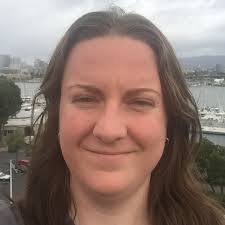
Many companies benefit from open source, and countless companies have opted to open source components of their infrastructure (or even their bread and butter) in an effort to give back. However, there are a lot of misconceptions about what happens when you open up your business' code and workflows to the public, and as companies delve into how to apply open principles within their organization, it's easy to get lost in the weeds. Here are some common misconceptions about what happens when you open source your code...
- Login to post comments
7 Notable Legal Developments in Open Source in 2016
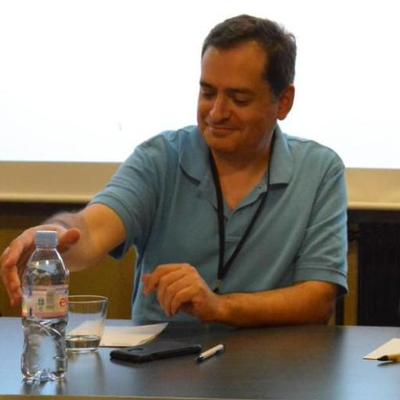 In 2012 the jury in the first Oracle v. Google trial found that Google's inclusion of Java core library APIs in Android infringed Oracle's copyright. The district court overturned the verdict, holding that the APIs as such were not copyrightable (either as individual method declarations or their "structure, sequence and organization" [SSO]). The Court of Appeals for the Federal Circuit, applying 9th Circuit law, reversed, holding that the "declaring code and the [SSO] of the 37 Java API packages are entitled to copyright protection." The U.S. Supreme Court declined to review the case, and in 2016 a closely watched second trial was held on Google's defense of fair use. In May 2016 the jury returned a unanimous verdict in favor of Google...
In 2012 the jury in the first Oracle v. Google trial found that Google's inclusion of Java core library APIs in Android infringed Oracle's copyright. The district court overturned the verdict, holding that the APIs as such were not copyrightable (either as individual method declarations or their "structure, sequence and organization" [SSO]). The Court of Appeals for the Federal Circuit, applying 9th Circuit law, reversed, holding that the "declaring code and the [SSO] of the 37 Java API packages are entitled to copyright protection." The U.S. Supreme Court declined to review the case, and in 2016 a closely watched second trial was held on Google's defense of fair use. In May 2016 the jury returned a unanimous verdict in favor of Google...
- Login to post comments
7 Ways Open Source was Essential to Business in 2020
 The COVID-19 pandemic created many new challenges for businesses in 2020 as they rapidly moved non-essential workers to remote operations. However, it also created tremendous opportunities for innovation as people searched for effective ways to work and collaborate virtually. Opensource.com responded to the need by publishing a variety of articles in 2020 on working better with open source. Since it appears working remotely is here to stay for the foreseeable future, make sure you're doing everything you can to adapt by reading the top seven articles about open source business from 2020.
The COVID-19 pandemic created many new challenges for businesses in 2020 as they rapidly moved non-essential workers to remote operations. However, it also created tremendous opportunities for innovation as people searched for effective ways to work and collaborate virtually. Opensource.com responded to the need by publishing a variety of articles in 2020 on working better with open source. Since it appears working remotely is here to stay for the foreseeable future, make sure you're doing everything you can to adapt by reading the top seven articles about open source business from 2020.
- Login to post comments
7 Ways to Discuss Legal Matters with an Open Community
 Having watched a fair number of people attempt to engage both the Open Source Initiative's licensing evaluation community and the Apache Software Foundation's legal affairs committee, I'd like to offer some hints and tips for succeeding when it's your turn to conduct a legal discussion with an open community. First and foremost, make sure the person conducting the conversation is both qualified and empowered. Don't send proxies; they simply frustrate the community, who quickly work out that your representative is always playing the second-hand car salesman and going to the back room to ask for a deal...
Having watched a fair number of people attempt to engage both the Open Source Initiative's licensing evaluation community and the Apache Software Foundation's legal affairs committee, I'd like to offer some hints and tips for succeeding when it's your turn to conduct a legal discussion with an open community. First and foremost, make sure the person conducting the conversation is both qualified and empowered. Don't send proxies; they simply frustrate the community, who quickly work out that your representative is always playing the second-hand car salesman and going to the back room to ask for a deal...
- Login to post comments
8 Clever Ideas For Making Government Work Better With Data
How can we make the places we live more awesome through data? Read More »
- Login to post comments
8 Linux Predictions for 2016
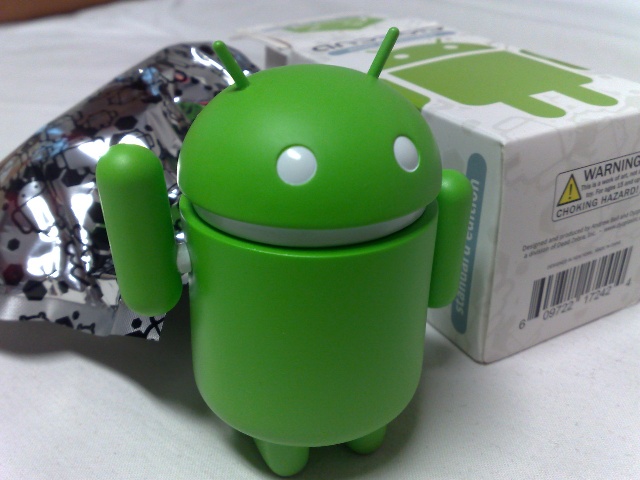 Looking ahead to 2016, I see big things for ChromeOS, Android, and even Microsoft in the Linux world. As 2015 comes to a close, the time has arrived to make predictions for what will happen in the Linux (and broader Free and Open Source Software) world in the year ahead. Will all of my predictions actually come true in 2016? Who knows? But I’m making them anyway!...
Looking ahead to 2016, I see big things for ChromeOS, Android, and even Microsoft in the Linux world. As 2015 comes to a close, the time has arrived to make predictions for what will happen in the Linux (and broader Free and Open Source Software) world in the year ahead. Will all of my predictions actually come true in 2016? Who knows? But I’m making them anyway!...
9 Relevant Topics for Community Leaders Today
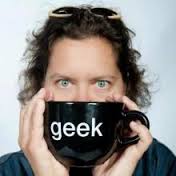 In 2009, Jono Bacon brought the first Community Leadership Summit to the free and open source world. Five years later, Donna Benjamin hosted an off-shoot event, CLSx at linux.conf.au in Perth. 2017 marks the third year for CLSxAU at LCA. This year the event hosted nearly 30 attendees, each participating in one or more of nine discussion sessions. All CLS events are presented in an unconference format, allowing attendees to shape the program as they see fit...
In 2009, Jono Bacon brought the first Community Leadership Summit to the free and open source world. Five years later, Donna Benjamin hosted an off-shoot event, CLSx at linux.conf.au in Perth. 2017 marks the third year for CLSxAU at LCA. This year the event hosted nearly 30 attendees, each participating in one or more of nine discussion sessions. All CLS events are presented in an unconference format, allowing attendees to shape the program as they see fit...
- Login to post comments
9 Rules for the Proper Care and Feeding of Communities and Carnivorous Plants
 In 2016, I adopted my first carnivorous plants, a Venus Fly Trap and a Pitcher Plant, which my Facebook friends named Gordon and Bananarama, respectively. I quickly discovered that the health of Gordon and Bananarama was closely connected to the environment I provided as much as to their ability to catch the occasional bug and get energy from the sun. In this article, I'll pull from my experience working with open source communities—and a few months of experience keeping Gordon and Bananarama alive—to explain how caring for carnivorous plants is much like caring for a community...
In 2016, I adopted my first carnivorous plants, a Venus Fly Trap and a Pitcher Plant, which my Facebook friends named Gordon and Bananarama, respectively. I quickly discovered that the health of Gordon and Bananarama was closely connected to the environment I provided as much as to their ability to catch the occasional bug and get energy from the sun. In this article, I'll pull from my experience working with open source communities—and a few months of experience keeping Gordon and Bananarama alive—to explain how caring for carnivorous plants is much like caring for a community...
- Login to post comments
A 3D printed Hand Brings The Crowd To Their Feet
Earlier this year, I shared my story about open source designs and my 3D printed prosthetic hand to a room of 4,600+ at Intel’s Annual International Sales Conference in Las Vegas. I joined Jon Schull on stage, the founder of e-NABLE, an online group dedicated to open source 3D printable assistive devices.
- Login to post comments
A 40-Year 'Conspiracy' at the VA
 Four decades ago, in 1977, a conspiracy began bubbling up from the basements of the vast network of hospitals belonging to the Veterans Administration. Across the country, software geeks and doctors were puzzling out how they could make medical care better with these new devices called personal computers. Working sometimes at night or in their spare time, they started to cobble together a system that helped doctors organize their prescriptions, their CAT scans and patient notes, and to share their experiences electronically to help improve care for veterans...
Four decades ago, in 1977, a conspiracy began bubbling up from the basements of the vast network of hospitals belonging to the Veterans Administration. Across the country, software geeks and doctors were puzzling out how they could make medical care better with these new devices called personal computers. Working sometimes at night or in their spare time, they started to cobble together a system that helped doctors organize their prescriptions, their CAT scans and patient notes, and to share their experiences electronically to help improve care for veterans...
- Login to post comments
A Business Plan for Your Open Source Project
 Open sourcing your code is only a small part of building a successful open source community. Like any new venture, you need a vision of what you want to achieve and a concrete plan that will take you there. You want to be able to answer questions about your project like: Who is this project geared towards? Why would someone want to use this code, let alone, contribute to it?What core problem am I trying to solve?
Open sourcing your code is only a small part of building a successful open source community. Like any new venture, you need a vision of what you want to achieve and a concrete plan that will take you there. You want to be able to answer questions about your project like: Who is this project geared towards? Why would someone want to use this code, let alone, contribute to it?What core problem am I trying to solve?
- Login to post comments
A Community of Practice Is More Than a Website
Over the last year or so, the term communities of practice has entered the social media buzzword lexicon along with virtual collaboration, engagement, platforms, and Enterprise 2.0. Senior leaders want to establish them, new employees are being told to join them, and middle managers are being told to support them, but what, exactly are they? Read More »
- Login to post comments
A Connected Garden Can Reap More Of What You Sow
You don't have a green thumb, but your devices might. [...] If you find yourself accidentally killing your plants, maybe it’s time to hand over the controls to somebody else. Make that something else—connected devices that use quantified data to nurture your plants into their most verdant and fruitful selves. Read More »
- Login to post comments
A Doctor Leverages Open Source to Learn How to Code And Improve Medical Care in Africa
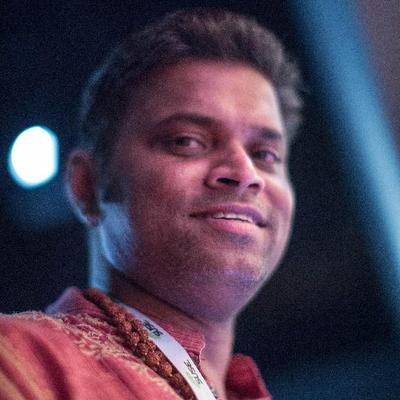 Judy Gichoya is a medical doctor from Kenya who became a software developer after joining the open source medical records project, OpenMRS. The open source project creates medical informatics software that helps health professionals collect and present data to improve patient care in developing countries. After seeing how effective the open medical records system was at increasing efficiency and lowering costs for clinics in impoverished areas of Africa, she began hacking on the software herself to help improve it. Then she set up her own implementation in the slums outside Nairobi, and has done the same for dozens of clinics since. This is a classic story of open source contributors, who join in order to scratch an itch. But Gichoya was a doctor, not a programmer. How did she make the leap?
Judy Gichoya is a medical doctor from Kenya who became a software developer after joining the open source medical records project, OpenMRS. The open source project creates medical informatics software that helps health professionals collect and present data to improve patient care in developing countries. After seeing how effective the open medical records system was at increasing efficiency and lowering costs for clinics in impoverished areas of Africa, she began hacking on the software herself to help improve it. Then she set up her own implementation in the slums outside Nairobi, and has done the same for dozens of clinics since. This is a classic story of open source contributors, who join in order to scratch an itch. But Gichoya was a doctor, not a programmer. How did she make the leap?
- Login to post comments